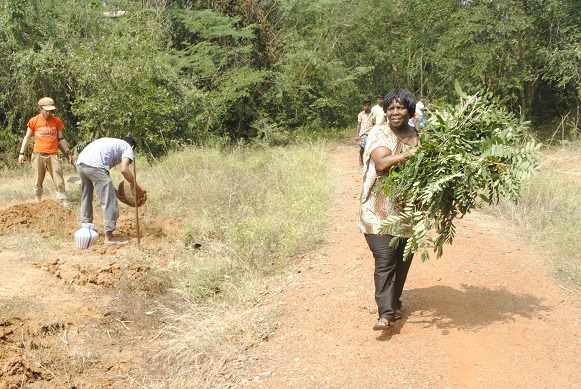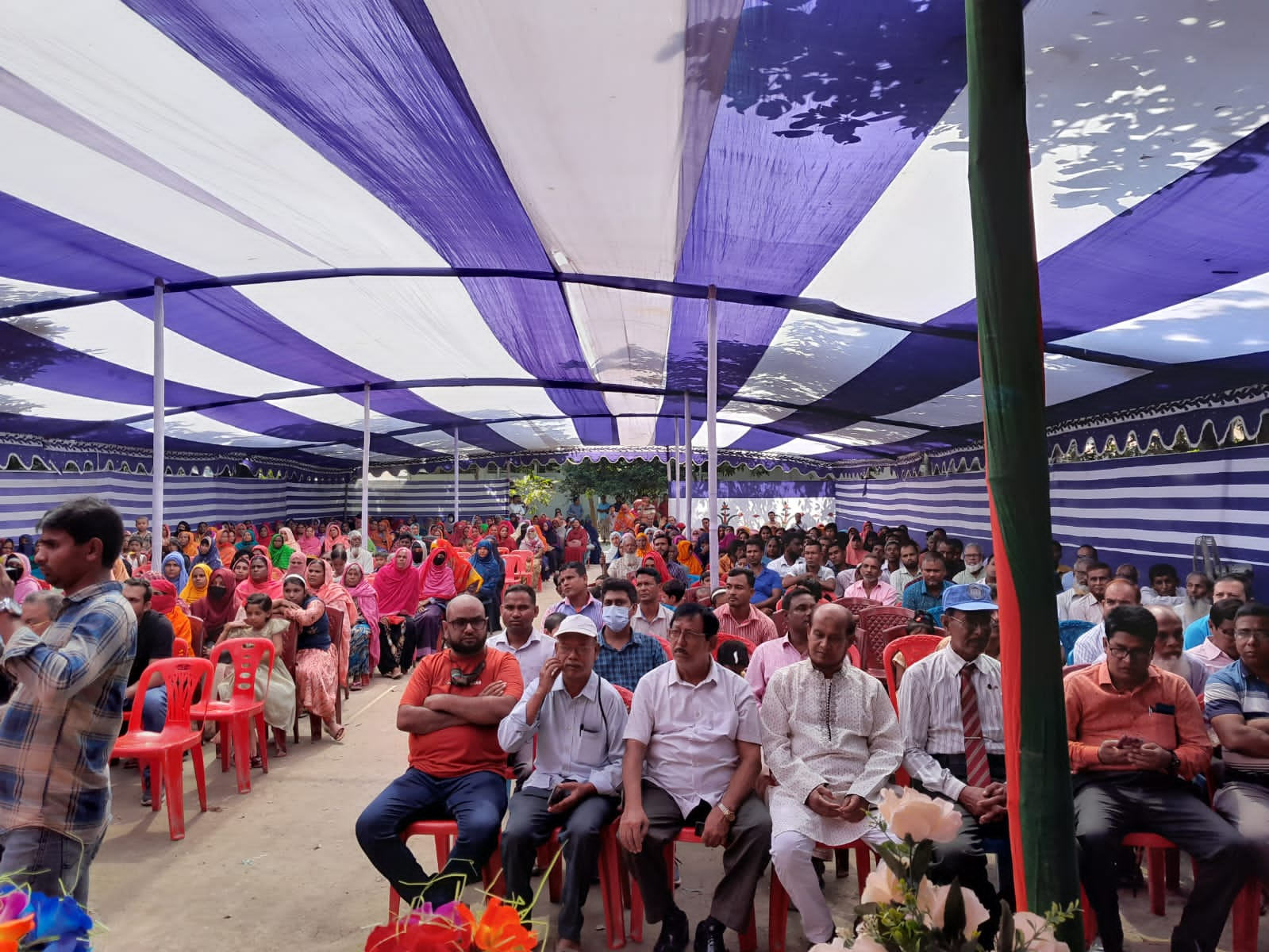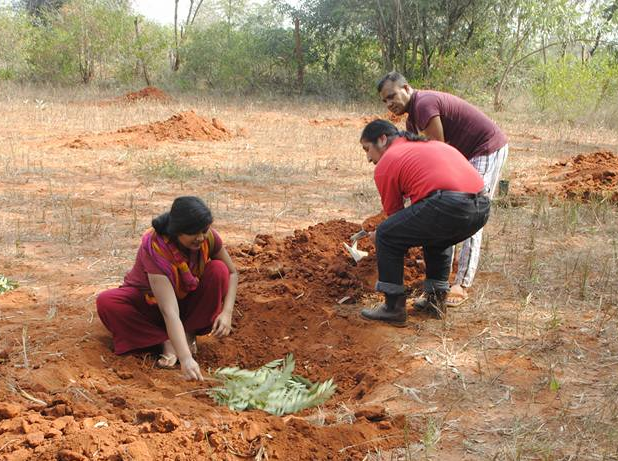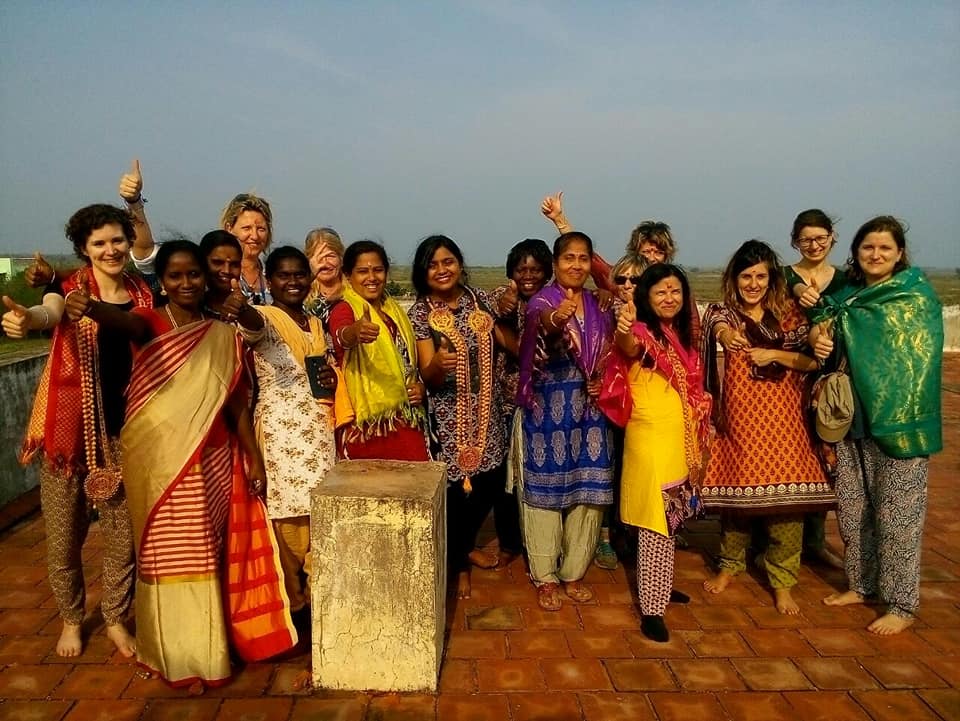Kudumbam Logbook #1 “You never stop Learning!”

The Asia work camp provided an opportunity for participants from different walks of life to share their knowledge. Here, Véronique Gnanih, leader of the Emmaus Tohouè community in Benin, shares her experience.
There are 5000 miles separating India from Benin, Véronique Gnanih’s home country. In spite of the distance, she felt that the journey was essential: “I’ve wanted to go to the agro-ecology farm in Kudumbam for a long time as their activities are very similar to what I do in Tohouè”, she said. In January, therefore, she took advantage of the opportunity of the Asia work camp, organised by Emmaus International, to fly over to India along with around 30 other international participants, in order to share experiences around environmental justice.
Protecting the environment is a key issue for the leader of the Emmaus Tohouè community, and she has been a leading figure in her country, where she has been raising awareness of this struggle among the population since 1988. Pioneering activities carried out by the Tohouè group include training in waste management and organic farming, which are topics that are shared Kudumbam group in India, where the Asia camp was being hosted.
Positive interactions
What most struck Véronique Gnanih was the debate that enriched the work camp. “I’m so happy to be taking solutions back to my country”, she said. More specifically, in agricultural regions where there is no refrigeration, storing and preserving the seeds and grains needed for farming is very complex. Multinationals exploit this situation, “freely distributing hybrid seeds to peasant farmers, which are bad for the health, and enslaving the farmers that become dependent on the fertilizer and pesticides that these multinationals sell,” revealed Véronique Gnanih.
In Kudumbam, she was excited to learn that the agro-ecology farm had developed its own technique for preserving traditional seeds, without needing access to electricity. “They taught me their methods, and I’m going to copy the model in Benin,” said an enthusiastic Véronique Gnanih. This transfer of knowledge is one small revolution that will have a significant impact on farmers in Benin.
She was also able to share valuable knowledge with the Kudumbam group, who were not employing the best technique for sewage treatment. “I explained that they could manage the problem with two specific aquatic plants that work as a natural regulator. They had these plants without knowing their uses. I showed them how I did things in Benin, and now they’ve learnt the technique”, explained Véronique Gnanih.
Now back in Tohouè, Véronique Gnanih is planning to get on with the task of spreading the lessons learnt from the Asia work camp through training sessions for farmers. “Development is part of a whole. It impacts the fields of health, agriculture, water and hygiene. The public need to be made aware of this circularity,” she concluded.


